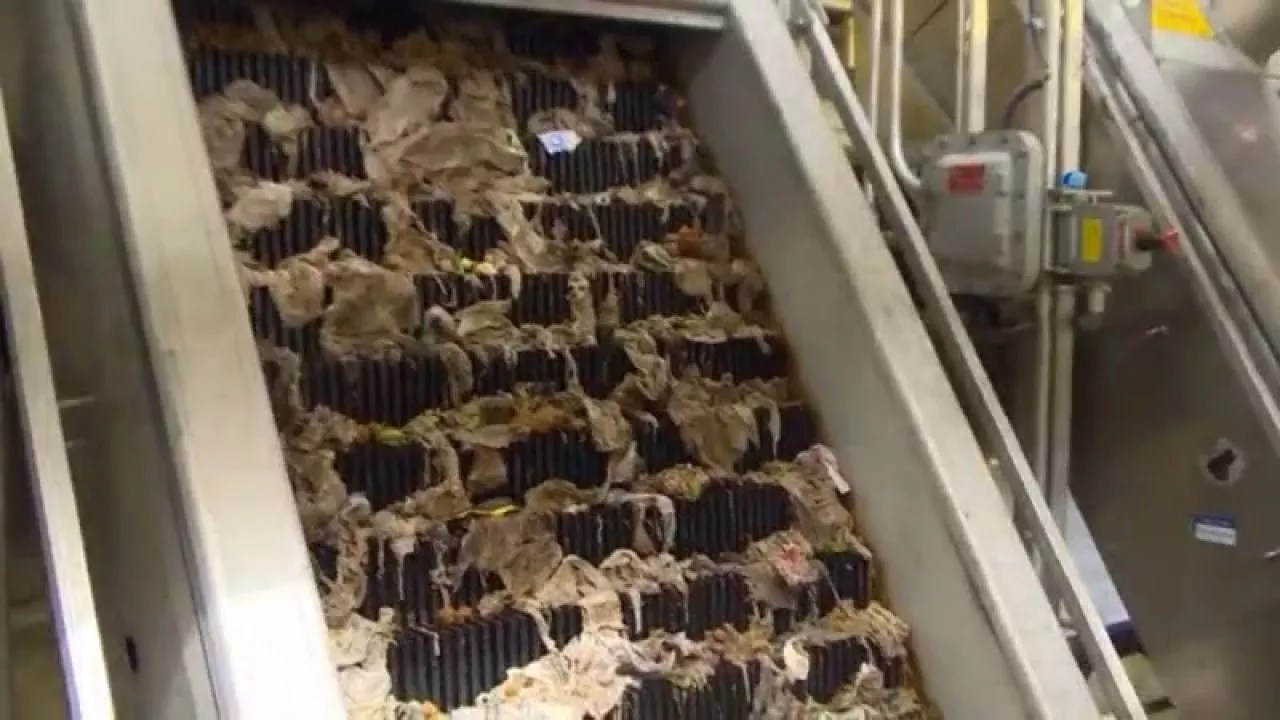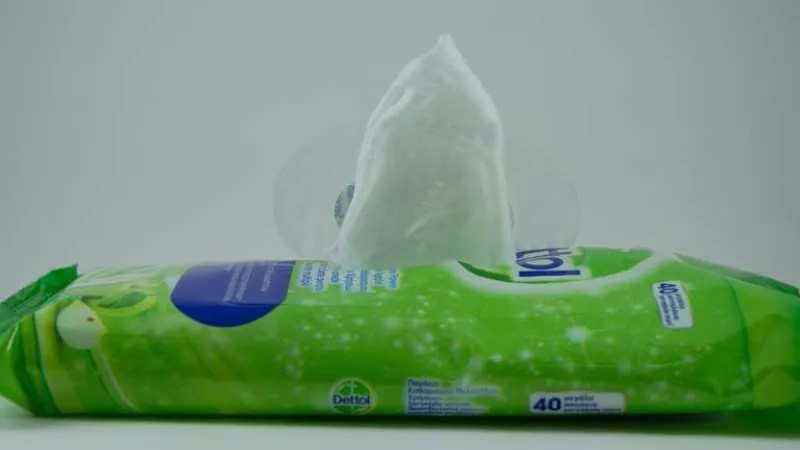
kron4.com screen capture

Audio By Carbonatix
It’s been more than two weeks since Governor Jared Polis imposed a statewide stay-at-home order as part of efforts to combat the spread of COVID-19, and nearly a month since panic buying became a thing at area grocery stores, with paper products the most sought-after prizes. And while shortages of staples such as meat, milk, flour and sugar are much less common than they were, toilet paper can still be hard to find, with many outlets struggling to keep it in stock.
As a result, plenty of people in Denver continue using items such as disinfecting wipes, paper towels and napkins as toilet paper substitutes. The situation has improved since the days in the immediate wake of Polis’s order, but not quickly enough – and according to Liam Cavanaugh, senior director of coordinated operations for the Metro Wastewater Reclamation District, the results have been ugly.
“Even supposedly flushable wipes don’t disintegrate in wastewater the way toilet paper does,” notes Cavanaugh. “Instead, they start to conglomerate, causing what we call a rag ball to form. And rag balls can clog pipes.”
That’s not all they can do.
Cavanaugh reveals that late last month, a rag ball caused some equipment damage at the MWRD’s Brighton plant. Given the enormous scale of the system, which serves most of metro Denver, including parts of Adams, Arapahoe, Jefferson and Douglas counties, as well as sixty local governments representing assorted cities and sanitation districts, the damage didn’t cause a catastrophic breach, and the facility was quickly able to transition back to full capacity. But smaller districts haven’t been as fortunate.

Wipes clog pipes.
Photo by Christine Sandu on Unsplash
“A lot of our pipes are very wide in diameter, so if we have rag balls forming, we have a pretty robust cleaning and maintenance regimen that can usually deal with them – even the split crews we’ve been running” to maintain social distancing, Cavanaugh points out. “But we’ve seen some reports from other partners, including ones in Greeley and Thornton, that have had issues at pump stations because of this. And we’ve definitely seen an increase in flushable wipes and paper towels coming into the front end of our facility.”
Such items can cause headaches for individual homeowners, too. “By flushing these things down your line, you could clog your own part of the system – the part that’s not owned by the city or by Metro Wastewater,” Cavanaugh says. “If that happens, you’ll have to deal with that situation yourself.”
Possible repercussions for homeowners include sewage backups creating a hazardous-waste scenario that could make it unsafe to remain in the residence until after expensive mitigation can take place – and that’s particularly problematic when all Coloradans are supposed to be following Polis’s mandate.
In an attempt to educate the public about what’s okay to flush (and what’s not), Metro Wastewater is promoting a simple slogan: “Wipes clog pipes.” According to Cavanaugh, “We really need to keep those things in the trash. We want to make sure we protect vital functions, so we don’t have overflows. And one way to do that is to make sure only toilet paper makes it down the sewers.”
If you can find toilet paper in the first place, that is.